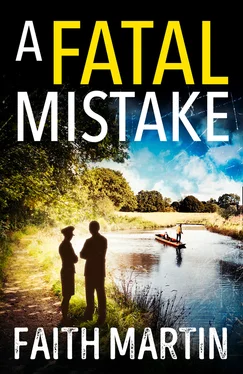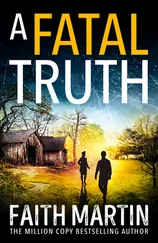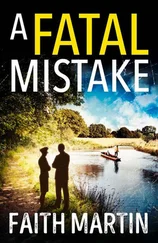Nearly one week later, Dr Clement Ryder, a coroner of the City of Oxford, sat at his bench, listening to the court proceedings getting underway at the inquest into the death of Mr Derek Chadworth, aged twenty-one, a former student of St Bede’s College, Oxford.
At the age of fifty-seven, the coroner was a tall man, standing at an inch over six foot, with healthy, abundant white hair and somewhat watery grey eyes. And if he was just beginning to have rather more meat on his bones than in his youth, he wore the extra pounds well. The role of coroner was a second career for him after having spent the majority of his adult working life as a renowned surgeon. But not liking to dwell on the reasons for his enforced change of direction, he now watched the courtroom and its denizens with some interest. As was to be expected in a case like this, the public gallery was full, with its fair share of local reporters taking up a jockeying position. The jury, looking both sheepish and self-important, had just taken their places. A police constable waited to give his evidence rather nervously. He looked young and inexperienced, and Dr Ryder hoped he wasn’t going to have any trouble keeping him to the point.
Widely known to be a man who didn’t suffer fools gladly, he was in appearance an imposing figure, and many of the members of the public (as well as some of the court officials) watched him warily. He had the look of someone who had no problems whatsoever in juggling such weighty issues as life and death in his obviously capable hands.
He displayed no signs of outward impatience as the proceedings finally got underway. And the first of the court’s functions (to assign a name or identity to the deceased) was rapidly disposed of, as Derek’s parents had already identified his body.
Having done that, the often much trickier second question – of trying to ascertain exactly how the deceased had come to meet his end – was tackled.
First up was a nervous young mother, who gave her evidence of having seen a body floating in the river near the village of Wolvercote in a rather rushed and whispery voice. Dr Ryder, while handling her kindly, had to demand more than once that she speak up.
Next came the medical man. Dr Ryder knew him, of course – and was most certainly known by him! All those who had to give medical evidence in his court understood that no fudging would be tolerated, as it was quite clear he knew as much – if not more – about medicine as those actually giving the evidence! According to Dr Clement Ryder, at least. So it wasn’t wholly surprising that police surgeons and pathologists weren’t particularly happy when called upon to give evidence while Clement was the presiding coroner. Some of the older brigade, who naturally felt superior to both jury and coroner, and had thus become used to taking it for granted that their word would be taken for law, now refused to set foot in court if he was presiding. Of course, none of them was willing to admit that perhaps they hadn’t kept quite as up to date with all the new science and medical practices over the past decade as they should have. And they most certainly weren’t willing to concede that his own years as a surgeon gave him the right to show them up in public or drag their mistakes and uncertainties to the attention of the press.
The present medico, however, was of the younger, brasher and more confident generation of men and had no qualms about stating his opinions concerning the medical evidence uncovered in his autopsy. These opinions he proceeded to relate to the jury in no uncertain terms – including the time of death, which he stated as between 8 a.m. and 2 p.m., with a small leeway on either side.
Dr Ryder listened without interruption (a minor miracle in itself, some aficionados of the court might have said) and occasionally even nodded in approval. Mainly because the young man, without condescending or speaking down to the jury in any way, was managing in a clear and concise way to convey the facts.
The cause of death had clearly been drowning. What was more, the water found in the dead man’s lungs had been consistent with a second sample taken from the river and it was noted that there was rather a lot of sediment present, suggesting that the water the victim drowned in had been significantly churned up. Furthermore, froth at the mouth and all other signs of death by drowning had been present and meticulously noted. There were no significant signs of anything else untoward – such as a blow to the head of the type so beloved of many penny-dreadful murder-mystery books. Nor were there any scratches on his face or hands, or anything else that might indicate the young man had been in a fight or suffered any other assault upon his person.
Here, the coroner cynically noted that a number of those present seemed vastly disappointed. Evidently they had been hoping for rather more drama – especially the press men.
Unaware of this, however, the young doctor swept blithely on. He had also found alcohol present in the deceased’s stomach – not enough to state that he was very drunk, but enough to suggest he perhaps wouldn’t have been operating at his best. (Later evidence would prove the young man had been out drinking into the early hours.)
When the young doctor finally stepped down, the coroner’s brisk thanks ringing as an endorsement in his ears, Clement could see he’d made a good impression on the jury, who were now looking a little more relaxed, if not downright relieved. And it wasn’t hard to understand why.
In his two years as a coroner, Clement had come to read juries as clearly as if they were his old medical texts. No matter what the case, he’d learned all juries had certain things in common.
Nearly all of them, for instance, were anxious and aware of the burden being put on them by being called to carry out their civic duty. This was especially apparent in obvious cases of suicide, where none of them wished to add to the burden of bereaved families by labouring the point, and where, nearly always when bringing in this verdict, they included the rider ‘while the balance of their mind was disturbed’.
Sometimes they were afraid – if, for instance, the cause of death was particularly harrowing and they knew they would have to listen to horrific evidence, such as some poor farm worker being pulled into a combine harvester or something along those lines.
In the case of a suspicious death – a rare occurrence – there was always the added element of excitement and scandal that gave a particular glow to their cheeks.
Clement had seen all sorts sitting on the jury – working men, housewives, mothers, a smattering of professionals, and the occasional layabout or academic. By and large, though, they were good, honest (if not particularly intelligent), average men and women, who could be relied upon to have common sense and bring in a sound verdict. But if, by any chance, it looked as if they might be about to wander off the straight and narrow and deliver some silly verdict because they’d got a bit above themselves, or had become confused or bamboozled, it was his job to steer them back onto the right path.
Occasionally, a juror would surprise him. But he thought he had the measure of this bunch all right.
The old boy with the rumpled blue suit, for instance, was undoubtedly going to nominate himself as chairman of the committee, and would probably be backed up by the two middle-aged stalwarts from the WI, who were sitting at the far right of the line. A younger woman and two younger men were clearly impatient and wanted only to get it all over with. No doubt they felt they had better things to do. A rather vacant-eyed middle-aged man was actually taking it all in keenly, which was more than could be said for an old woman who was busily knitting something surreptitiously on her lap. As for the rest, they were the usual mix and match to be found anywhere in British society.
Читать дальше












